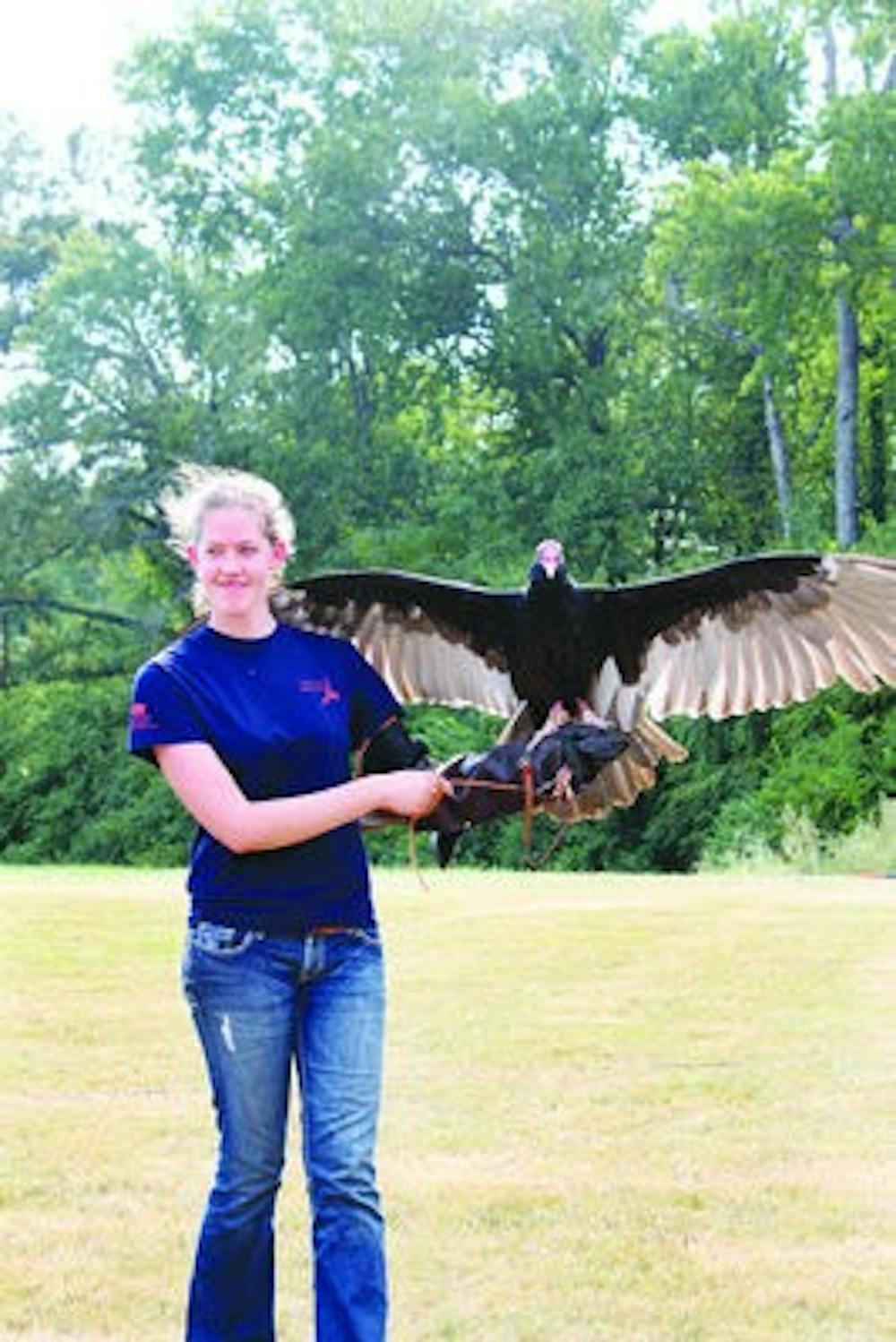Friday afternoons before home games are buzzing with activity as tailgaters roll into town, but a show at the Southeastern Raptor Center is educating the community about raptors.
"The Southeastern Raptor Center does rehabilitation of injured, ill and orphaned wildlife," said raptor specialist Marianne Hudson. "Education of the community about raptors and their role in the environment and conservation through study of raptors."
The center takes in birds from all over the Southeast, but mainly Alabama and Georgia.
Liz Crandall is a raptor rehabilitation specialist and works on the rehabilitation side of the center.
"We do our best to rehabilitate them and put them back into the wild," Crandall said.
Some birds are able to be released and others are not, depending on the amount of trauma.
"Some of them face pretty serve trauma and the only thing to do is to euthanize them," Crandall said. "But we do have a lot of cases that aren't able to be released, but they do make good educational candidates and they would have a good quality of life in a zoo or educational facility like ours."
Crandall said birds have been placed in New York, Florida, Oregon and California.
Nova, Spirit and Tiger, Auburn War Eagles, are rescued birds.
"Nova was born at the Montgomery Zoo, as he was not planned, so he wasn't on their permit," Crandall said. "So we added him to our permit."
Spirit was found injured in South Florida.
"He had a broken wing and a damaged beak, and you can still see the damaged beak if you get really close to him, so he was actually not releasable," Crandall said.
Tiger's story is perhaps the most mysterious.
Born in 1980, Tiger was illegally bred in captivity in Kentucky.
"She passed through several hands before she came here," Hudson said. "And for a long time she was the responsibility of the (Alpha Phi Omega) fraternity here on campus. And they took great care of her, but then eventually her care and guardianship was handed over to the Southeastern Raptor Center."
Hudson said the center--specifically her partner Roy Crowe--has been trying to acquire information about her for years from U.S. Fish and Wildlife Service agents regarding how she came from Kentucky to the fraternity.
"All those guys are retired," Hudson said. "And they're like, 'We'll have someone call you back,' and we can't ever get the information."
Hudson said she knew Tiger went through a couple of rehabiliation centers before she went to the fraternity.
Hudson and Crowe work to educate the community on raptors.
"We're both raptor specialists, and we have a group of educational raptors that are permanent residents here at the center," Hudson said. "And what we do with them is educational presentations all over the Southeast."
Presentations are given to school groups, scout groups and church groups.
"We use the birds as a catalyst to get the audience excited about learning," Hudson said.
Hudson said each presentation is different, and the content is based on the needs of the client.
"We have used the birds to teach about ecology, mathematics, literature, history and also biblical studies," Hudson said.
With a wide variety of people at the shows on Friday before home games, Hudson said they tend to focus on the amazing abilities of the birds.
"So falcons, for example, are the fastest animals on the planet," Hudson said. "Eagles are incredibly strong, so we tend focus on some of the natural history information of the birds that people would be interested in."
Student workers help Hudson and Crowe with the raptor presentations.
Sean Smith, senior in wildlife sciences, is the primary caretaker of Mercer, a barn owl living at the Center.
"I actually started out on the rehabilitation side before I came down to the education side," Smith said. "I've been here all summer and started this semester."
Hudson said her job is rewarding and enjoyable.
"I enjoy using the birds to inspire an appreciation for God's creation," Hudson said.
Do you like this story? The Plainsman doesn't accept money from tuition or student fees, and we don't charge a subscription fee. But you can donate to support The Plainsman.





